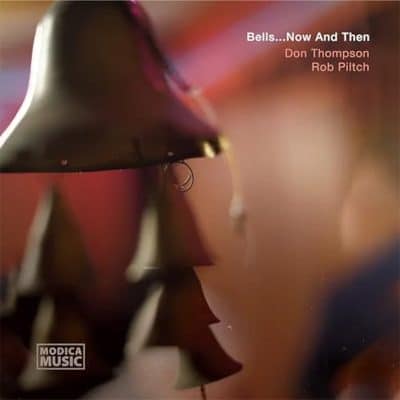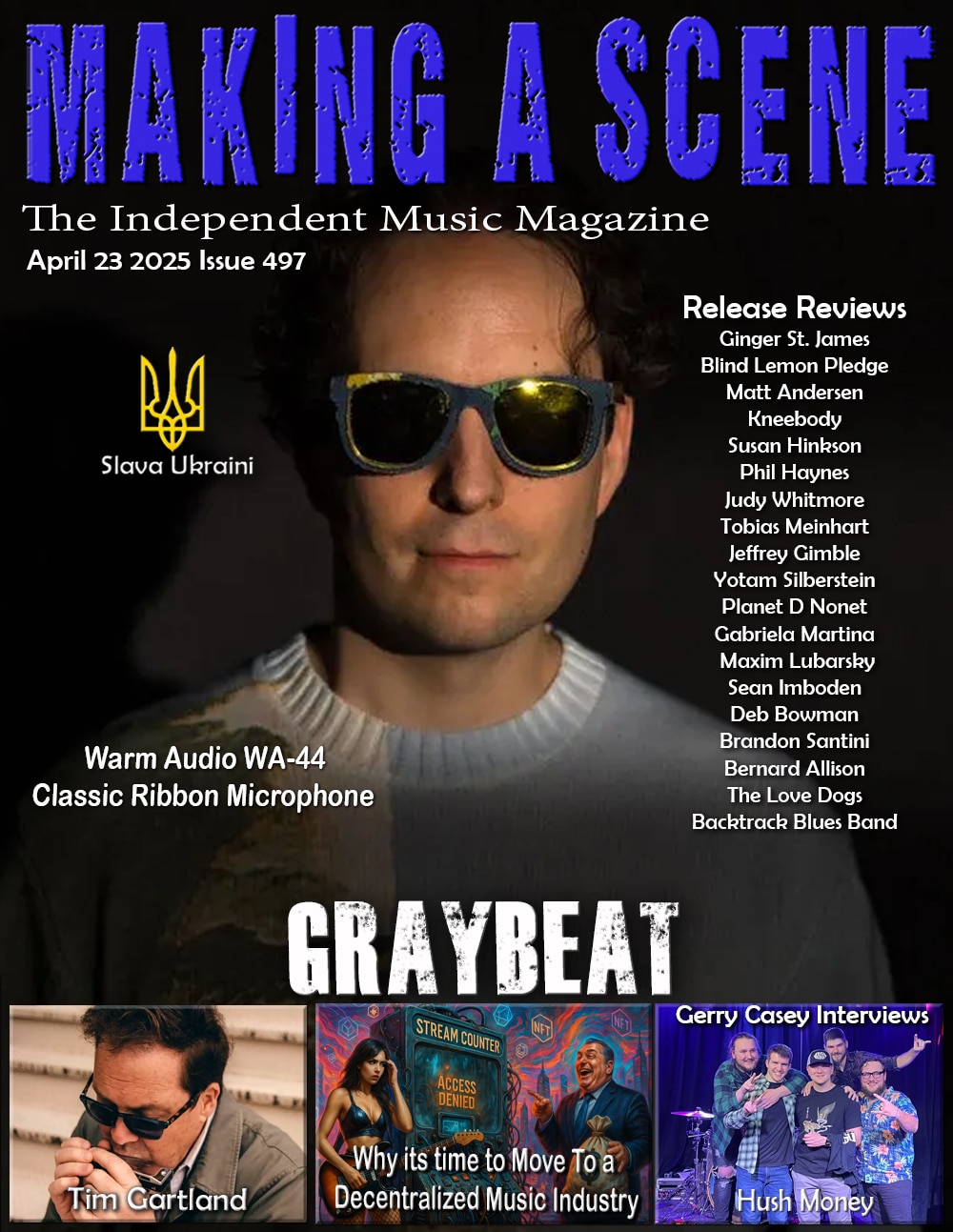Don Thompson/Rob Piltch Bells… Now and Then
 Don Thompson Rob Piltch
Don Thompson Rob Piltch
Bells… Now and Then
Modica Music
Being pleasantly surprised is always good. In this case, approached an album recorded some 42 years ago, held modest expectations at best but the music from veteran multi-instrumentalist Don Thompson and the accomplished fingerstyle guitarist Rob Piltch not only sounds uniquely creative but compatible with contemporary offerings. Bells… Now and Then is a reissue of their seminal 1982 recording Bells, bookended by two newly recorded compositions. The original nine tracks were recorded in three sessions from the fall of 1981 through winter of 1982. At the time Thompson, the 42 years old, already a pillar on the Canadian music scene, collaborated a Piltch who was only 24. The two collaborated again here for the two new tracks, “Circles” and “Days Gone By.”
Considering these may be new names to you, here’s a brief synopsis of both. Don Thompson was and is (as you’ll hear) a triple threat (piano, bass, vibraphone) on the Toronto studio and club scene during the late ‘60s as well as regular bassist in Rob McConnell’s Boss Brass. He began touring with Jim Hall in 1974, later appearing on the guitar great’s 1975 album, Live!, a pivotal jazz guitar recording. It was engineered by Thompson himself at Toronto’s Bourbon Street club, where he had also backed visiting American musicians like saxophonists Lee Konitz and James Moody and vibraphonist Milt Jackson. Thompson began playing in George Shearing’s quartet in 1982, touring and recording with the gifted pianist-composer for five years. He returned to the Boss Brass in 1987 and remained a fixture in the band (this time on piano) until 1993. He’s recorded over 20 albums as a leader or co-leader since then. Rob Piltch, the acclaimed fingerstyle guitarist is also a Canadian music icon who began with classical guitar training under the esteemed John Williams, setting the foundation for his esteemed career.
Guitar aficionados may recognize the opener “Circles” which appeared on Jim Hall’s 1981 trio album of the same name on Concord. Piltch, who only recently know plays with a pick, opens with gorgeous solo guitar followed by equally delicate and fluid piano from Thompson before both comingle their resplendent sounds. Hall’s echoes also imbue “Caribe,” a calypso flavored tune where Thompson accompanies the guitarist (and solos robustly) on upright bass, evoking the many versions of Hall’s collaborations with Sonny Rollins, most notably “St. Thomas.” Thompson switches back to piano for the delightful lyrical gem, “September,” blending beautifully with Piltch’s fingerstyle guitar, deft picking, and sparkling tone.
“Stratford Stomp” changes the dynamic. Named for the Stratford Summer Music Festival where the two had played while touring the original album, we hear them engaging in challenging unison lines and unfettered call-and-response in a tune imbued with bop-like lines and echoes of Oscar Peterson in Thompson’s angular, bluesy piano. Just as Thompson had supported Piltch earlier on bass, Piltch returns the favor by emphasizing his bass strings in support of Thompson’s piano which turns gloriously shimmering on his solo turn, “Bells.”
The original album featured a suite of five compositions, consuming all of Side Two on the LP. In the first piece, “Kyoto,” Thompson weaves the melody on his acoustic bass, supported also acoustically by Piltch who also remains in the lower register. “Moon Dance” is a brief piece with Piltch sending up ringing harmonics and Thompson playing one single sustained piano note. The soothing “Red Dragonfly” is a showcase for Piltch, using his volume pedal for an enchanting, mysterious but melodious effect while Thompson’s chiming notes float in. The guitarist modulates with the same pedal on “Nexus” for a fluttering, reverberating effect, joined for the first time by Thompson on vibes and they together venture into alternately ethereal and dissonant sonics for the final minute and half or so. The final piece, “Chant” was originally envisioned as a Gregorian chant that Piltch was orchestrating for a strong orchestra, instead playing whole piece on guitar as Thompson accompanies with ringing single vibe notes. The music just seems suspended in the ether until surprisingly swelling in a giant crescendo to mark the suite’s finale.
The final track, the second of the new pieces, closes the album in requisite intimate style. It was previously recorded by pianist George Shearing on his 1992 Telarc album, How Beautiful is Night, and nods to the decades that have passed between. The tune which features both solo and blended section from both is a testament to their remarkable chemistry remaining intact despite the four decades plus hiatus. If you pick up a physical copy, be sure to read Bill Milkowski’s liner notes, which provide far better descriptions than those of this writer. In any case, enjoy the calming soothing music, which, if one didn’t know better, would think it was from an ECM recording. It has those endearing qualities of elegance, judicious use of space, and ethereal, dreamy, contemplative soundscapes. Perfect for relaxation.
- Jim Hynes
Buy Us a Cup of Coffee!
Join the movement in supporting Making a Scene, the premier independent resource for both emerging musicians and the dedicated fans who champion them.
We showcase this vibrant community that celebrates the raw talent and creative spirit driving the music industry forward. From insightful articles and in-depth interviews to exclusive content and insider tips, Making a Scene empowers artists to thrive and fans to discover their next favorite sound.
Together, let’s amplify the voices of independent musicians and forge unforgettable connections through the power of music
Make a one-time donation
Make a monthly donation
Make a yearly donation
Buy us a cup of Coffee!
Or enter a custom amount
Your contribution is appreciated.
Your contribution is appreciated.
Your contribution is appreciated.
DonateDonate monthlyDonate yearlyYou can donate directly through Paypal!
Subscribe to Our Newsletter
Discover more from Making A Scene!
Subscribe to get the latest posts sent to your email.














































